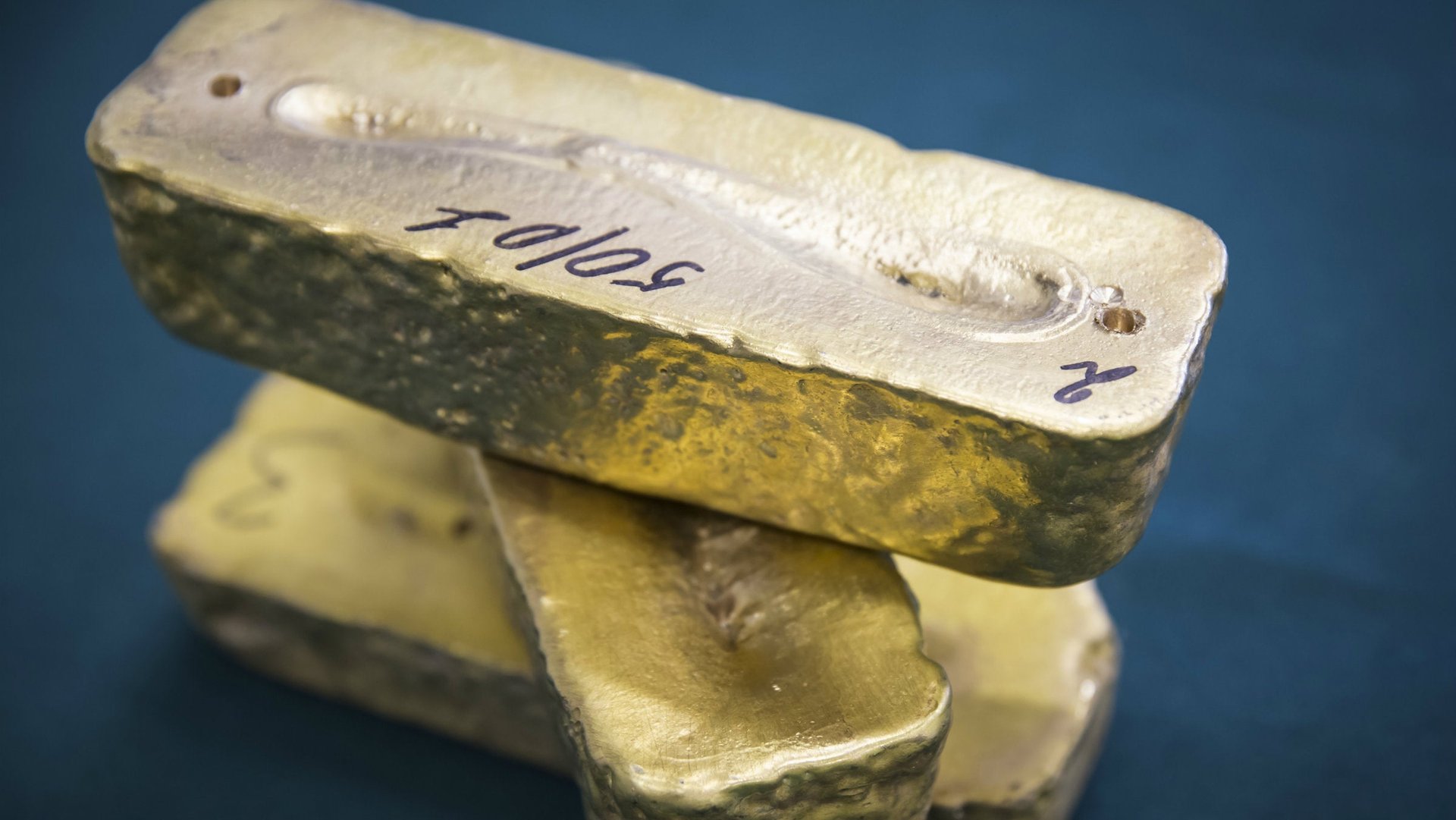China’s commodity-lending fraud just got $15 billion bigger
An investigation into missing copper and aluminum stocks in the eastern Chinese port of Qingdao has earned the nickname the “Qingdao Whale,” because banks including Citigroup, Standard Bank and HSBC could be exposed, as well as over a dozen Chinese banks, and estimates of the loans at risk now top $2 billion.


An investigation into missing copper and aluminum stocks in the eastern Chinese port of Qingdao has earned the nickname the “Qingdao Whale,” because banks including Citigroup, Standard Bank and HSBC could be exposed, as well as over a dozen Chinese banks, and estimates of the loans at risk now top $2 billion.
But that whale might turn out to be a minnow, judging by the latest missing metals related report.
China’s National Audit Office reported today it has discovered 94.4 billion yuan ($15.2 billion) in fraudulent loans backed by gold stocks that don’t exist. Unnamed banks were using “fictional” cross-border currency-swap loans backed by gold to take advantage of interest-rate differences inside and outside China, the report says. The report marks the “first official confirmation of what many people have suspected for a long time—that gold is widely used in Chinese commodity financing deals,” Liu Xu, an analyst at Capital Futures in Beijing, told Bloomberg.
Lending against and reporting of gold trade is more regulated than many other commodities, and the banks involved are probably Chinese, given the audit agency’s remit. The investigation into Qingdao’s copper stocks has already sent jitters through the copper market, so the latest disclosure could prompt a sell-off by gold traders over the short term.
The report is also certain to spook both Chinese and foreign banks that are already jumpy about lending against commodities in China. Because China’s commodity lending market is so opaque, the long-term spillover effects could be severe.
A drastic and sudden squeeze of available credit to Chinese companies, which are estimated to have taken out as much as $160 billion in commodity-backed loans in recent years (about a third of their short-term foreign exchange borrowing) could send already struggling businesses in China to the wall. A “sudden stop” in foreign liquidity to China’s companies could even cause more serious problems for China’s economy, and the value of the yuan, as Quartz has recently reported.
So far, things aren’t that bad. And many unanswered questions remain about what seems to be a growing investigation into commodity-backed lending in China overall, including basics like “How much money has been lent against commodity stocks in China?” and “Is there actually a growing investigation into commodity lending in China?” But one thing is almost certain—China’s missing metals problem will get bigger before it ends.